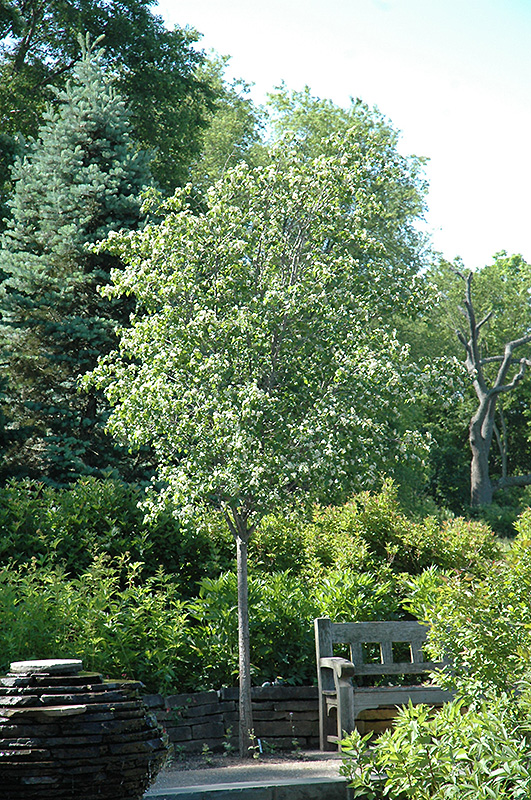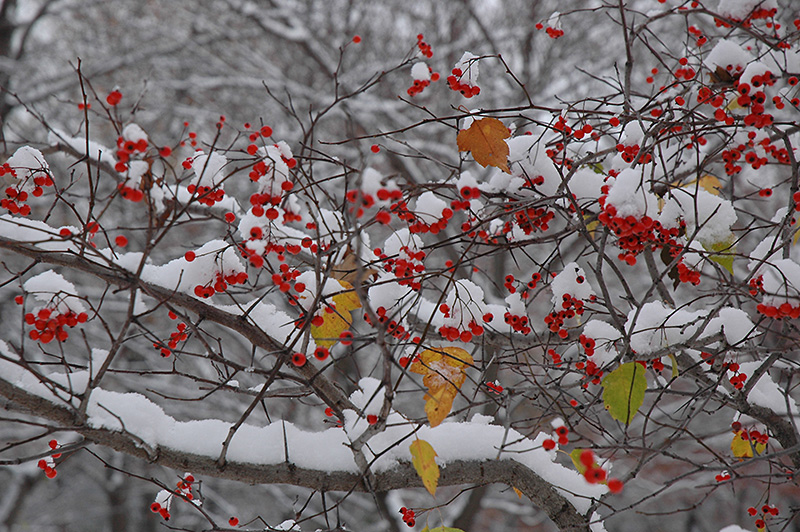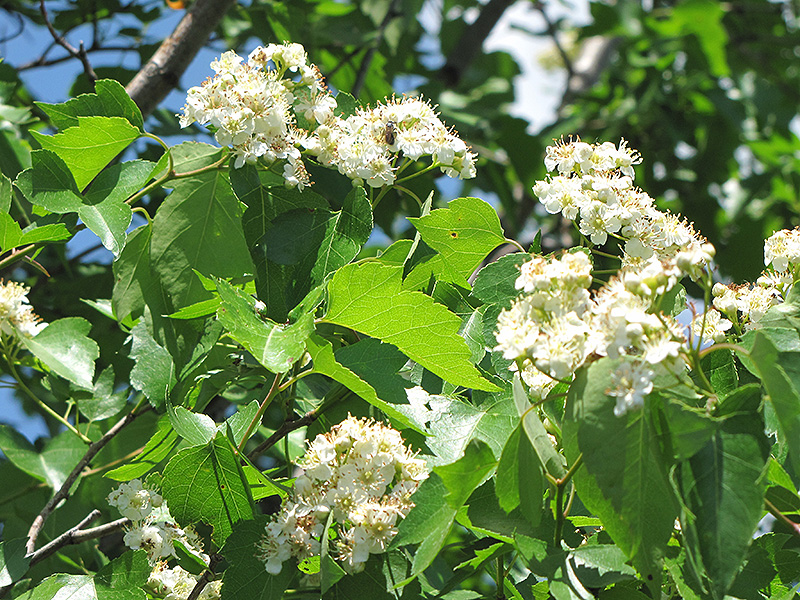PLANT FINDER
Height: 25 feet
Spread: 20 feet
Sunlight:
![]()
![]()
Hardiness Zone: 4a
Description:
A truly beautiful tree for accent use in home landscapes; snowy white flowers in spring, abundant brilliant red fruit in fall and spectacular fall colors, however, extremely thorny
Ornamental Features
Washington Hawthorn is smothered in stunning clusters of white flowers held atop the branches in late spring. The fruits are showy red pomes carried in abundance from early fall to late winter. It has forest green deciduous foliage which emerges burgundy in spring. The serrated lobed leaves turn an outstanding scarlet in the fall.
Landscape Attributes
Washington Hawthorn is a dense deciduous tree with a shapely oval form. Its average texture blends into the landscape, but can be balanced by one or two finer or coarser trees or shrubs for an effective composition.
This is a relatively low maintenance tree, and is best pruned in late winter once the threat of extreme cold has passed. Gardeners should be aware of the following characteristic(s) that may warrant special consideration;
- Spiny
Washington Hawthorn is recommended for the following landscape applications;
- Accent
- Hedges/Screening
Planting & Growing
Washington Hawthorn will grow to be about 25 feet tall at maturity, with a spread of 20 feet. It has a low canopy with a typical clearance of 4 feet from the ground, and is suitable for planting under power lines. It grows at a medium rate, and under ideal conditions can be expected to live for 40 years or more.
This tree does best in full sun to partial shade. It is very adaptable to both dry and moist growing conditions, but will not tolerate any standing water. It is not particular as to soil type or pH. It is somewhat tolerant of urban pollution. This species is native to parts of North America.



